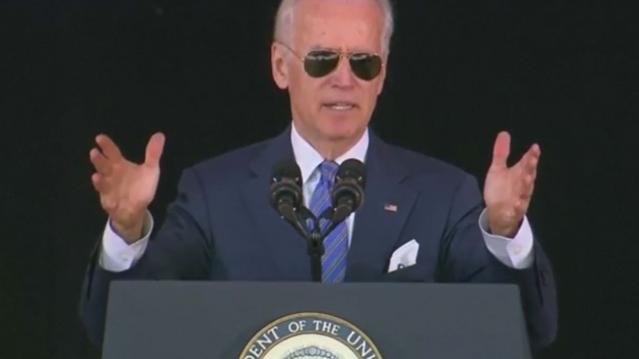Congress Sends Tax Bill to the White House

The Republican-controlled U.S. House of Representatives gave final approval on Wednesday to the biggest overhaul of the U.S. tax code in 30 years, sending a sweeping $1.5 trillion bill to President Donald Trump for his signature.
In sealing Trump’s first major legislative victory, Republicans steamrolled opposition from Democrats to pass a bill that slashes taxes for corporations and the wealthy while giving mixed, temporary tax relief to middle-class Americans.
The House approved the measure, 224-201, passing it for the second time in two days after a procedural foul-up forced another vote on Wednesday. The Senate had passed it 51-48 in the early hours of Wednesday.
Trump had emphasized a tax cut for middle-class Americans during his 2016 campaign. At the beginning of a Cabinet meeting on Wednesday, he said lowering the corporate tax rate from 35 percent to 21 percent was “probably the biggest factor in this plan.”
Trump planned a tax-related celebration with U.S. lawmakers at the White House in the afternoon but will not sign the legislation immediately. The timing of the signing was still up in the air.
After Trump repeatedly urged Republicans to get it to him to sign before the end of the year, White House economic adviser Gary Cohn said the timing of signing the bill depends on whether automatic spending cuts triggered by the legislation could be waived. If so, the president will sign it before the end of the year, he said.
The debt-financed legislation cuts the U.S. corporate income tax rate to 21 percent, gives other business owners a new 20 percent deduction on business income and reshapes how the government taxes multinational corporations along the lines the country’s largest businesses have recommended for years.
Millions of Americans would stop itemizing deductions under the bill, putting tax breaks that incentivize home ownership and charitable donations out of their reach, but also making tax returns somewhat simpler and shorter.
The bill keeps the present number of tax brackets but adjusts many of the rates and income levels for each one. The top tax rate for high earners is reduced. The estate tax on inheritances is changed so far fewer people will pay.
Once signed, taxpayers likely would see the first changes to their paycheck tax withholdings in February. Most households will not see the full effect of the tax plan on their income until they file their 2018 taxes in early 2019.
In two provisions added to secure needed Republican votes, the legislation also allows oil drilling in Alaska’s Arctic National Wildlife Refuge and repeals the key portion of the Obamacare health system that fined people who did not have healthcare insurance.
“We have essentially repealed Obamacare and we’ll come up with something that will be much better,” Trump said on Wednesday.
“Pillaging”
Democrats have called the tax legislation a giveaway to the wealthy that will widen the income gap between rich and poor, while adding $1.5 trillion over the next decade to the $20 trillion national debt, which Trump promised in 2016 he would eliminate as president.
“Today the Republicans take their victory lap for successfully pillaging the American middle class to benefit the powerful and the privileged,” said House Democratic leader Nancy Pelosi.
few Republicans, whose party was once defined by its fiscal hawkishness, have protested the deficit-spending encompassed in the bill. But most of them have voted for it anyway, saying it would help businesses and individuals, while boosting an already expanding economy they see as not growing fast enough.
“We’ve had two quarters in a row of 3 percent growth,” Senate Republican leader Mitch McConnell said after the Senate vote. “The stock market is up. Optimism is high. Coupled with this tax reform, America is ready to start performing as it should have for a number of years.”
Despite Trump administration promises that the tax overhaul would focus on the middle class and not cut taxes for the rich, the nonpartisan Tax Policy Center, a think tank in Washington, estimated middle-income households would see an average tax cut of $900 next year under the bill, while the wealthiest 1 percent of Americans would see an average cut of $51,000.
The House was forced to vote again after the Senate parliamentarian ruled three minor provisions violated arcane Senate rules. To proceed, the Senate deleted the three provisions and then approved the bill.
Because the House and Senate must approve the same legislation before Trump can sign it into law, the Senate’s late Tuesday vote sent the bill back to the House.
Democrats complained the bill was a product of a hurried, often secretive process that ignored them and much of the Republican rank-and-file. No public hearings were held and numerous narrow amendments favored by lobbyists were added late in the process, tilting the package more toward businesses and the wealthy.
U.S. House Speaker Paul Ryan defended the bill in television interviews on Wednesday morning, saying support would grow for after it passes and Americans felt relief.
“I think minds are going to change,” Ryan said on ABC’s “Good Morning America” program.
Reporting by David Morgan and Amanda Becker; Additional reporting by Richard Cowan, Roberta Rampton, Gina Chon and Susan Heavey; Editing by Jeffrey Benkoe and Bill Trott.
Medical ID Theft is a Way Bigger Problem Than You Think

Forget Target and Home Depot. You may be risking identity theft every time you visit the doctor’s office.
Medical ID theft, in which thieves steal your Social Security number and health insurance info in order to fraudulently obtain medical services or treatment, is skyrocketing.
More than 90 percent of healthcare organizations have had a data breach, and 40 percent had more than five data breaches in the past two years, according to a report released last month by ID Experts. Attacks by criminal organizations are up 125 percent over the past five years. Medical identities are worth far more on the black market than financial identities.
The study estimates that data breaches may have cost the industry $6 billion in the last two years. The scariest stat for consumers: Half of organizations surveyed have little or no confidence in their ability to detect all patient data loss or theft.
Related: Now You Could Lost Your Medical Identity, Too
Victims of medical ID theft spend thousands to restore their credit and correct inaccuracies in their medical records, and unlike banks and credit card issuers, most healthcare organizations offer no protection services for victims.
In addition to the financial toll, there are health risks to victims of medical ID theft. If someone steals your identity and receives treatment that gets added to your medical records, doctors may have incorrect information regarding your health history and allergies.
It’s difficult to prevent medical ID theft, but monitoring your credit and closely reading your healthcare bill and explanation of benefits notices can help you catch it early.
Can a Few Chocolate Euros Stop a Grexit?

German Finance Minister Wolfgang Schaeuble has clashed repeatedly with Yanis Varoufakis over Greece's debt and economic reforms since the leftist Syriza party took power in January, pledging to end austerity and renegotiate the bailout terms.
In an interview with the children's television program "Logo" on German broadcaster ZDF last week, a girl reporter gave Schaeuble a supportive handful of the chocolate coins.
"I'll take a few for my Greek colleague, he also needs strong nerves," Schaeuble replied.
Greece hopes to secure a cash-for-reforms deal with its lenders this week. But after four months of tortuous negotiations no breakthrough is in sight. Without a deal Athens risks default or bankruptcy in weeks.
A Made-Up Holiday That Could Help Your Kids Go to College

Marketers are great at making up holidays—and who doesn’t love having an excuse to eat donuts on National Donut Day or pizza on National Pizza Day?
Most of these special days, however, tend to take a toll on both our wallets and our waistlines. Today may be an exception: The personal finance and college saving industries have dubbed today 529 Day (Get it? 5/29), a day to celebrate saving for college via tax-favored 529 plans.
Americans could benefit from any impetus to save more for higher education. The average American family that’s saving for college put away about $2,600 last year and has a total of just over $10,000 socked away for education, according to Sallie Mae’s annual How America Saves for College report. That’s the lowest amount since the survey began in 2009 — or about enough to send one kid to college for one semester at today’s prices.
Related: Top-rated 529 Plans Probably Are Not For You
Many states are “celebrating” the day with everything from waived enrollment fees to discounted admission to local baseball games. (Each plan is sponsored by a state but run by financial firms.) Check out this interactive map to find out if your state is offering any incentives today.
Contributions to a 529 plan are made after federal taxes, but the money grows tax-free as long as the proceeds are used for education costs. Some states also offer tax breaks on contributions.
The average cost of attending public college this year is $19,000. For private college it’s $33,000, according to The College Board. So there’s no time like today to start saving.
The 5 Funniest 2015 Commencement Speakers

At commencement ceremonies, every speaker gets to be a comedian, even comedians. The competition was tough, but at least two of the best lines compiled by The Washington Post, came from politicians.
“I stand here humbled, gracious and completely naked under this robe.”
--Maya Rudolph, Tulane University
“The UVA community has some experience with being defined by outsiders. It has been said that a rolling stone gathers no moss. I would add that sometimes a rolling stone also gathers no verifiable facts or even the tiniest morsels of journalistic integrity.”
--Ed Helms, University of Virginia
“Tisch graduates, you made it. And you’re f----ed. The graduates from the College of Nursing, they all have jobs. The graduates from the College of Dentistry, fully employed. The Leonard N. Stern School of Business graduates, they’re covered. The School of Medicine graduates, each one will get a job. The proud graduates of the NYU School of Law, they’re covered. And if they’re not, who cares? They’re lawyers.”
--Robert DeNiro, Tisch School of the Arts, New York University
…[Yale was] one touchdown away from beating Harvard this year for the first time since 2006. So close to something you’ve wanted for eight years. I can only imagine how you feel. I can only imagine.”
--Vice President Joe Biden, Yale University
Those of you who are graduating this afternoon with high honors, awards and distinction, I say, ‘Well done.’ And as I like to tell the C students, ‘You, too, can be president.’”
--former President George W. Bush, Southern Methodist University
Denny Hastert: Uh, About That $500,000 Statue…

Illinois state lawmakers are hitting the breaks on a proposal to spend half a million dollars for a statue honoring former U.S. House Speaker Dennis Hastert after the Justice Department indicted the Illinois Republican on multiple charges Thursday.
About a month before the DOJ announced the indictment against Hastert,
Illinois House Speaker Michael Madigan introduced a bill to allocate $500,000 from the Illinois Development Fund for a statue of Hastert, who represented Illinois’ 14th Congressional for 20 years after serving as a state representative.
Related: Lying, Cheating, Stealing: How Corrupt is America?
However, Madigan’s spokesperson, Steve Brown, said Hastert contacted lawmakers asked that they defer the proposal because of the state’s financial condition. Illinois currently is running a $9 billion deficit. Still, the bill, which passed through a house committee, was placed on the calendar for a third reading on May 18.
In the indictment released Thursday evening, federal investigators allege that Hastert paid $3.5 million in hush money to “cover up misconduct.” The money allegedly went to someone in Yorkville, Ill., where he previously coached high school wrestling. The seven-page indictment also accused him of lying to the FBI.
Following the announcement, Hastert reportedly resigned from his current position at Washington, D.C., law firm Dickstein Shapiro, as well as a board member at CME Group, according to Reuters.
